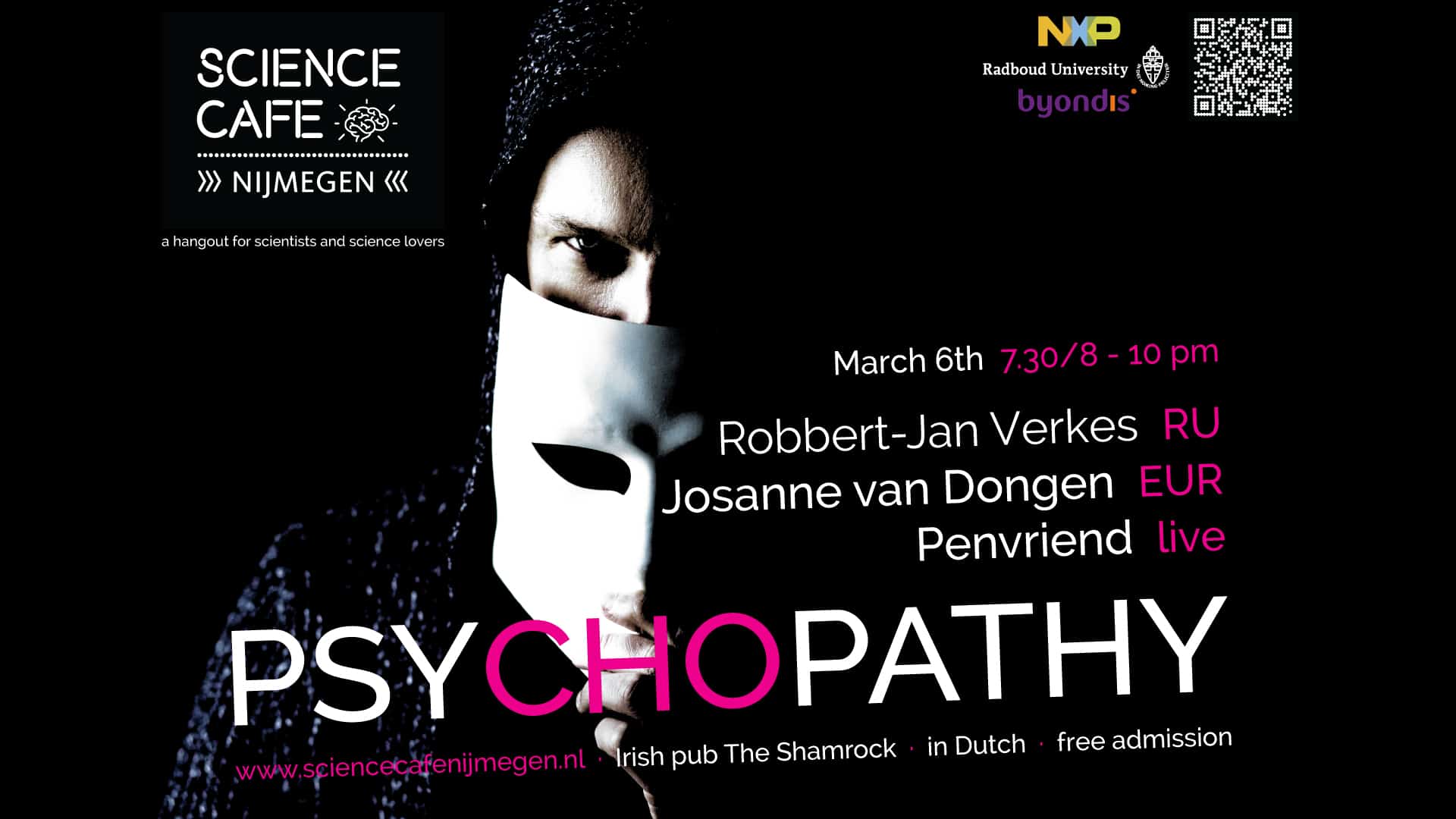Psychopathy has a public image of violence and crime, but research shows that this doesn't always have to be the case. Psychopaths can read other people well and predict what they are going to do. They're also known to be less empathetic, though skilled at manipulating others. Can these characteristic features be traced back to differences in the brain? Possibly psychopaths learn differently than non-psychopaths, or are there differences in sensitivity to reward and punishment? It is known that there is a genetic component to psychopathy, but what other factors might contribute to its development? And what is known about effective treatments for those whose lives are affected by their psychopathy?
On Monday evening March 6, experts in forensic psychology Robbert-Jan Verkes and Josanne van Dongen will discuss (in Dutch) in the Science Café recent developments in neurobiological research on psychopathy. Verkes (RU, Pompe Foundation) connects findings from scientific research with the clinical practice of forensic psychiatry. Among other things, he studies punishment and aggression, looking at specific brain regions such as the amygdala and prefrontal cortex. Through his work as a psychiatrist he can share vivid examples of psychopath treatment. Van Dongen (EUR) studies the psychopathic personality and how this relates to aggression. She maps the psychopathic brain by means of electrophysiology and brain modulation techniques, and also looks at the role of empathy. These neurobiological insights are used to develop interventions against aggression. During this evening, Penvriend will break the tension, providing a feel-good mood with their dreamy indie-folk.

